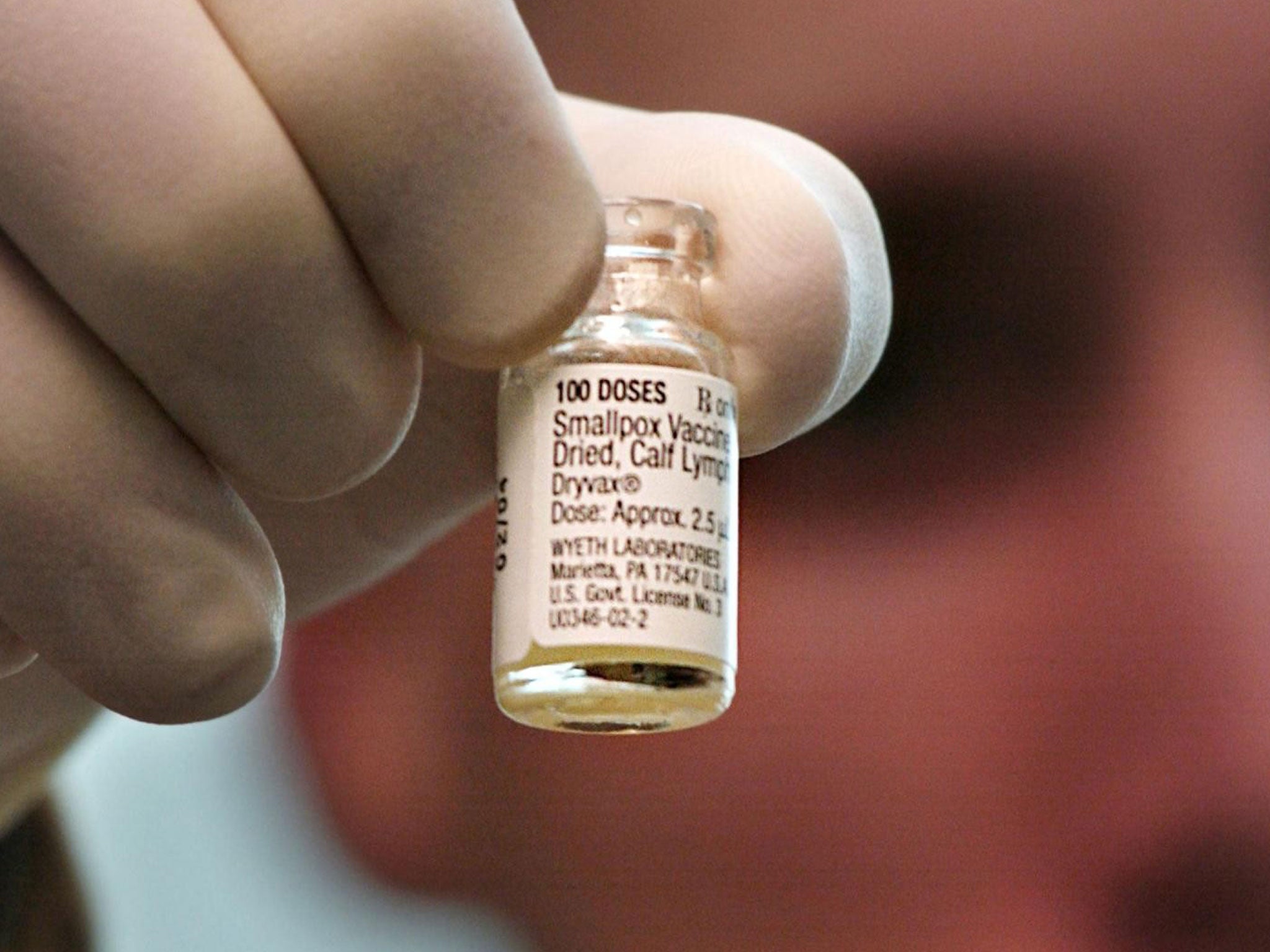£80m 'wasted' on smallpox terror threat
Leading scientist says fear that terrorists might attack Britain with the virus was 'far-fetched'

One of the country's foremost scientists has claimed Britain "wasted" almost £80m buying smallpox vaccine, after it emerged that the Government has quietly downgraded the threat of a terrorist attack using the virus.
Hugh Pennington, a bacteriologist, said he had always believed the idea of terrorists using smallpox was "far-fetched" because the virus spreads too slowly and is almost impossible to obtain.
Tony Blair ordered the purchase of millions of doses of the smallpox vaccine to protect the British puplic 11 years ago amid the post 9/11 security clampdown in the West.
But internal papers obtained by The Independent on Sunday show that ministers have now downgraded their assessment of the threat, and ruled that those preparations were too expensive, "unwieldy" and not "proportionate".
The Ministry of Defence and the Department of Health are both reviewing plans for dealing with a deliberate release of smallpox into the population, in line with a high-level judgement from intelligence analysts and germ-warfare advisers. Both departments have also decided to scale down a scheme to immunise hundreds of frontline workers, to enable them to treat those infected by a germ-warfare attack.
The decision emerged a decade after the then Labour government launched its "smallpox plan" post 9/11. The frantic escalation in Britain's defences against a germ-warfare attack came amid security fears and warnings that extremists could use biological agents such as smallpox and anthrax, as well as explosives.
But Professor Pennington said yesterday: "The downgrade is of a threat that should never have had an upgrade. Buying millions of doses of vaccine was a waste of money."
The decision by the Labour government to spend £79m on smallpox vaccine sparked an enormous political row at the time, as £32m of it went to a company owned by the Labour donor Paul Drayson. He later became a Labour peer and then a minister. The then health minister stated that Lord Drayson's company, Powderject, was awarded the contract as it was "the only company that was able to supply the vaccine that we required as soon as possible".
By 2005, the Department of Health had completed vaccinating a cohort of 516 volunteers, including 147 doctors, 164 nurses and 100 ambulance staff, "to deal with any initial suspected or confirmed case of smallpox".
But internal documents obtained by The IoS reveal that officials raised concerns over the "first responders" programme in 2006, four years after the smallpox plan was published.
A report on the scheme in May 2006 warned: "The current arrangement is proving operationally difficult to maintain, will require revaccination of significant numbers this year and presents a range of administrative, funding and value-for-money issues that also require resolution."
But, in a clear indication of the potential for controversy, officials made clear that they would not make an announcement about any change, warning that "smallpox remains a sensitive subject, and any change may attract media interest".
An updated report, in October 2011, stated: "Many of those in the cohort have not been revaccinated, as required to maintain immunity, or have moved on. A decision is needed ... to maintain such a vaccinated cohort, now the threat of smallpox has been downgraded."
Ministers eventually requested advice from the Joint Committee on Vaccination and Immunisation (JCVI) late last year, citing the risks from the vaccine itself.
Minutes from the JCVI's confidential deliberations record that "JCVI was now asked to consider options for Smarts [Smallpox Management and Response Teams]... in light of the risks associated with smallpox vaccination and the changed current and future risk of an... outbreak.
"While the risk of smallpox outbreak may have reduced, there may still be a need for Smarts. However... a more appropriate and proportionate option would be to convene Smarts consisting of a registered cohort of unvaccinated or previously vaccinated healthcare workers who are willing to be (re-)vaccinated quickly in the event of an emergency."
Join our commenting forum
Join thought-provoking conversations, follow other Independent readers and see their replies
Comments
Bookmark popover
Removed from bookmarks